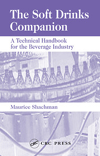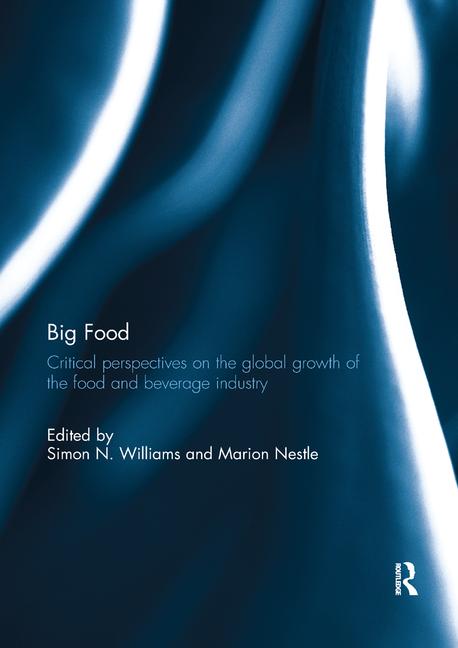Allied Domecq Closer to a Sale
Pernod Ricard, Paris, and
Fortune Brands, Lincolnshire, Ill., reached a $14 billion acquisition agreement with London-based Allied Domecq that would
make Pernod Ricard the second-largest wine and spirits company in the
world, with 20 of the top 100 global spirits brands. But the deal isn’t done yet, and a consortium led by
Constellation Brands, Fairport, N.Y., that also includes Brown-Forman,
Louisville, Ky., and investment firms Lion Capital and Blackstone, has
hinted at a counterbid.
Pernod Ricard estimates it would achieve pre-tax
synergies of about $380 million, and the company would retain the majority
of Allied’s business, including Ballantines, Beefeater, Kahlua,
Stolichnaya, Tia Maria, Montana, Mumm and Campo Viejo brands. The company
would sell brands such as Canadian Club, Courvoisier, Maker’s Mark,
Sauza, Laphroaig and Clos du Bois brands to Fortune Brands for about $5.1
billion.
“I would like to say how excited we are by this
transaction, which is a new major strategic step in Pernod Ricard’s
development,” said Pernod Ricard Chairman and Chief Executive Officer
Patrick Ricard in a statement. I believe that Allied Domecq’s
magnificent portfolio of brands has a great future within our group. We at
Pernod Ricard look forward to working with the
employees of Allied Domecq to realize the strong potential that exists to
grow our enlarged business.”
For its part,
Constellation has said it “is at an early stage of evaluating its options with a number of potential
partners.” BI
Rockstar teams with Coca-Cola
Coca-Cola North America
and Coca-Cola Enterprises have taken on distribution rights for Rockstar
Energy Drink. The cola companies will carry the product in most of the
United States and Canada, with the exception of the West, Northern
California and the Northwest, where the energy drink products will maintain
their current contracts.
The move builds Coca-Cola’s portfolio of energy
products, which also includes Full Throttle. The agreement is expected to
take effect May 31, and Rockstar President and Chief Executive Officer Russ
Weiner will retain ownership of the brand.
Coca-Cola also announced that it would buy out bottled
water partner Danone’s portion of the joint venture between the two
companies. Coca-Cola will pay about $100 million to become the sole owner
of CCDA Waters and take over the five plants that produce Danone waters.
Danone will retain ownership of the brand names. The Coca-Cola bottling
system also will continue to handle Danone’s Evian brand in the
United States, and will increase promotional spending 20 percent over the
next five years. BI
Changes brewing at Heineken
Heineken has announced a number of changes that have shuffled management
in the Netherlands and in the United States. Company Chief Executive
Officer Thony Ruys announced he plans to retire in the fall. He will be
succeeded by Jean François van Boxmeer, a member of the executive
board responsible for production in Eastern and North-West Europe, Heineken
Netherlands, Greece, Africa and the Middle East.
The company announced it will form a new, more
streamlined executive board consisting of van Boxmeer as chairman and chief
executive officer, Marc Bolland as chief operating officer and René
Hooft Graafland as chief financial officer. The company’s new
structure will include five operating regions: Western Europe, Central and
Eastern Europe, the Americas, Africa and the Middle East, and Asia Pacific.
In the United States, Andrew J. Thomas will become
president and chief executive officer, succeeding Frans van der Minne, who
will return to Amsterdam to serve as group director of human resources and
a member of the international executive committee. Thomas has been with
Heineken since 1995 and most recently served as managing director for the
Middle East/North Africa region.
Stephen H. Davis also will leave his post as senior
vice president of marketing for Heineken USA. His replacement has not been
announced. BI
Trump to water bottler: ‘You’re
hired!’
Mountain Spring Waters of
America LLC, Marlboro, N.J., an eight-month old marketer and distributor of
branded and private label bottled water, has become the primary distributor
in the New York and New Jersey area for Trump Ice spring water (yes, that Trump). The contract
runs through 2006.
Fans of NBC’s hit
television show, “The Apprentice,” will probably be familiar
with Trump Ice. During the show’s first season, two teams of aspiring
executives were given the task of developing and executing a marketing plan for Trump Ice.
Trump Ice was originally private labeled for Trump
casinos, hotels and golf courses, but customers began taking bottles home
and asking where they could buy the product. Never one to miss a business
opportunity, Trump decided to market the brand more broadly.
When Mountain Spring’s president and chief
executive officer, Mike Petrosino and his partners, Tom Battista and John
Perrone, learned that Trump was looking for a distribution partner, they
networked their way into a presentation in front of George Ross, an
executive vice president with Trump and a co-star of the television
program, and Kelly Perdiew, the season-two winner of “The
Apprentice.”
Petrosino understands very well the importance of the
recent agreement to market, promote and distribute Trump Ice. “Our
sales in 2004 were about $350,000, but we expect to quadruple that this
year,” he says. BI
ATTB evaluates regulations
The Alcohol and Tobacco Tax and Trade Bureau has solicited public
comment on possible changes to the labeling and advertising requirements of
alcohol beverage products. Issues under consideration include what
additional information such as carbohydrate and calorie claims,
ingredients, allergens and alcohol content should be mandatory, and whether
some or all of the information should be
voluntary. BI
World Beer Cup gets international nod
The Brewers Association,
Boulder, Colo., announced it has received
endorsements from 33 international companies and six international brewing
suppliers for the 2006 World Beer Cup, a biennial competition of beer
styles from around the world. The organizer of the competition says the
endorsement allows it to gain participation from breweries of all sizes in
all parts of the world. Among the sponsors are the American Society of
Brewing Chemists, the Beer Institute, Brewers of Canada, the National Beer
Wholesalers Association, the Siebel Institute of Technology, the
U.K.’s Institute of Brewing and Distilling, and Brewing Research
International.
Entries for the competition will be accepted from
Nov. 30, 2005, to Jan. 12, 2006, with judging scheduled for April 10-11,
2006, at the Craft Brewers Conference in Seattle. Awards will be given at
the Gala Awards Ceremony during the show. Approximately 1,500 entries
from 400 breweries in 40 nations are expected
for the 2006 competition. BI
Go figure
2.5
Percent decline in sales of
“carb-conscious” products during the week of March 19, 2005,
compared with the same week a year before, according to ACNielsen. It is
the first one-week sales drop for the segment since the company began
measuring products with low-carb claims in 2000.
5
Percent drop in food industry mergers in 2004 compared
with 2003, according to the Food Institute, Elmwood Park, Ill. Noticeable
changes included a jump in M&A activity among beverage alcohol
companies, which accounted for 10 of the major transactions vs. four in
2004, and investment firms, which doubled their acquisition rate vs. 2003.
16
Percent decline in Brazil’s coffee crop expected
this year, as reported by The Economist. The smaller crops will mean higher prices for growers,
which have seen prices double during the past 16 months to a seven-year
high.
686
Billions of dollars spent by Hispanic families in the
United States in 2004, according to the Food Marketing Institute’s El
Mercado 2004: A Perspective on U.S. Hispanic Shopping Behavior. That figure
is expected to reach $1 trillion by 2010.
18,000
Additional acres of California land that will need to
be devoted to premium grapes by 2010 to meet U.S. demand for top-quality
wine, according to MKF Research Monthly. The high-end wine segment is the
fastest-growing and most profitable segment of the U.S. wine market.
112,000
U.S. deaths blamed on obesity in 2000, according to
the Centers for Disease Control and Prevention and the National Institutes
of Health. The figure is significantly smaller than the previously reported
400,000 that was released in March 2004.


